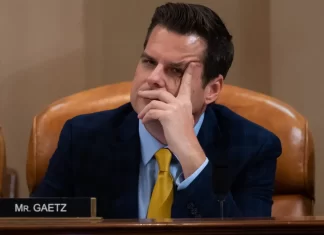The way forward
Failure to bring perpetrators of abuse to account sustains the climate of impunity that encourages others to commit abuse. There is the need to streamline the various internal disciplinary procedures in the Nigerian Police Force (NPF) into a manageable framework that could easily be used by aggrieved citizens seeking redress for police misconduct, as well as using data emanating from such mechanisms in tracking police officials who are subjects of unusually high numbers of citizens’ complaints.

There is also the need to strengthen external oversight of the police. One of the principal external police oversight mechanisms is the Police Service Commission (PSC).
The PSC, evinced under the Constitution and the PSC Act of 2001, is an independent and impartial institution. A body, which is established with the constitutional mandate to recruit, promote and discipline all police personnel other than the Inspector-General of Police (IGP) in an independent and impartial manner is expected to be composed and headed by non-partisan individuals of unquestionable integrity. What we need is a civilian-led PSC that has the courage to investigate all public complaints and cases of police abuse. Appointing a retired IGP undermines and subverts this mission and renders the PSC ultimately into another department of the NPF. This is not good for the police; it is inconsistent with the structure and purpose of the Constitution and the PSC Act of 2001, and defeats the whole essence of the establishment of the PSC as a civilian oversight body on policing in Nigeria.
The United Nations Special Rapporteur on Summary Executions, in the report of his mission to Nigeria in 2006 noted that “…the Police Service Commission is charged with police discipline, but has opted to refer all complaints of extra-judicial killing back to the police for investigation. The commission’s mandate is potentially empowering. But despite efforts by one or two excellent commissioners, its performance has been dismal and self-restraining. Its quarterly reports to the president are not published and present a dismal chronicle of rubber-stamping decisions taken by the police, coupled with inaction in relation to pressing concerns. A radical overhaul of its procedures and composition is warranted.”
Political control of the police is partly responsible for the inability of the police to effectively investigate and ensure accountability for killings, especially politically-motivated killings.
There is also the need for the immediate review of Force Order 237 on the use of firearms. Force Order 237 authorises the use of firearms if a policeman cannot “by any other means, arrest or re-arrest any person who is suspected or already has been convicted of an offence punishable by death or at least seven years imprisonment. This has often been used as justification by law enforcement agents to arbitrarily shoot to kill suspects, particularly those accused of capital offences.
“As a result, it would be justified to shoot to kill someone charged with stealing goods of negligible value, but alleged to be seeking to escape from custody. These rules practically provide the police with the licence to shoot and kill at will. Police Order No 237 should be amended immediately to bring it into conformity with the basic principles on the Use of Force Firearms by Law Enforcement Officials. The resulting emphasis should be on proportionality, on the use of lethal force as an absolute last resort, and only as stated in the basic principles when strictly unavoidable in order to protect life.”
Additionally, there is the need to continue the process of re-orientating the Nigeria police away from the doctrine and mentality of the colonial and military era which emphasised force, violence and brutality, to a democratic mindset that emphasises service and partnership with the community they serve.
Nigeria’s 1999 Constitution provides for the establishment of a ‘Police Force’ for Nigeria, and the police is then named in line with a “Force” focus as the Nigeria Police Force. Replacing the word “Force” with “Service” will serve as a constant reminder to the police, as well as to the public, that they exist to serve society. It necessitates a doctrine and philosophy of policing in Nigeria that must be reformed to accommodate democratic input and which defines the basis of policing in Nigeria as being citizen-focused with a service mission.
It is also impetrative to sanitise the recruitment process, adequately train, and fund and equip the police with modern crime intelligence and investigative infrastructure that will make resort to violence unwarranted, or at worse, a rare option.
It is also important to boost morale, discourage corruption and humanise the service by improving the conditions of service in the police.
The Nigeria police as presently constituted is large and too unwieldy to be managed from the centre. It must be decentralised, depoliticised, professionalised and freed from undue political interference and control.














